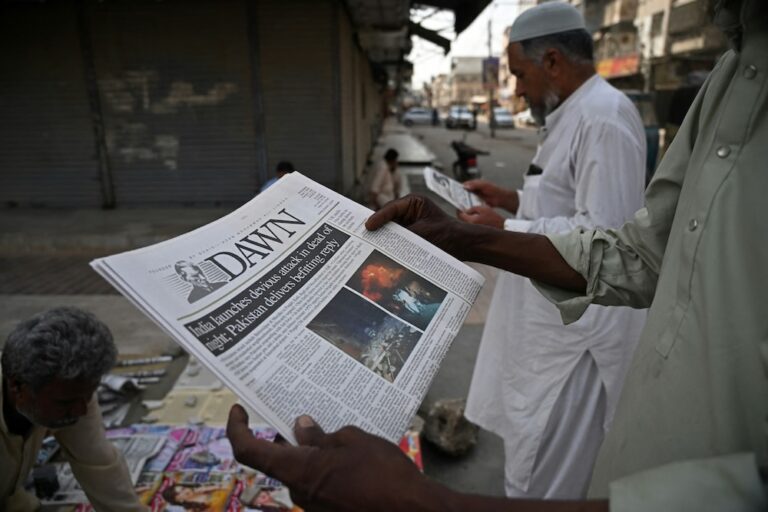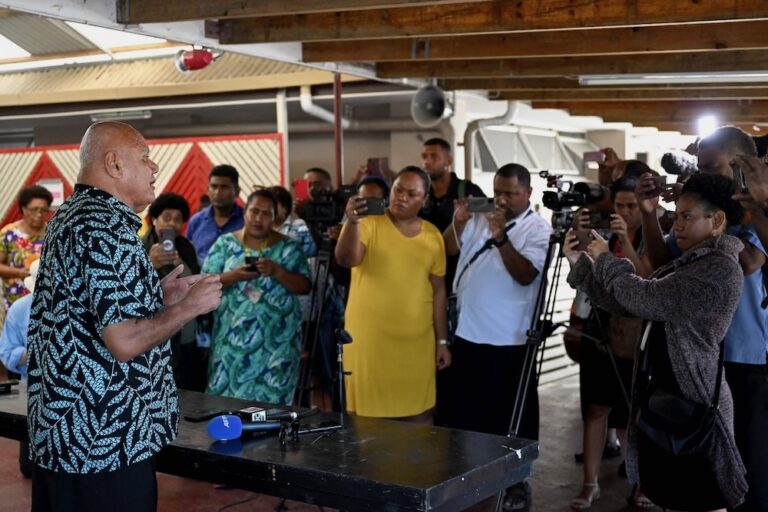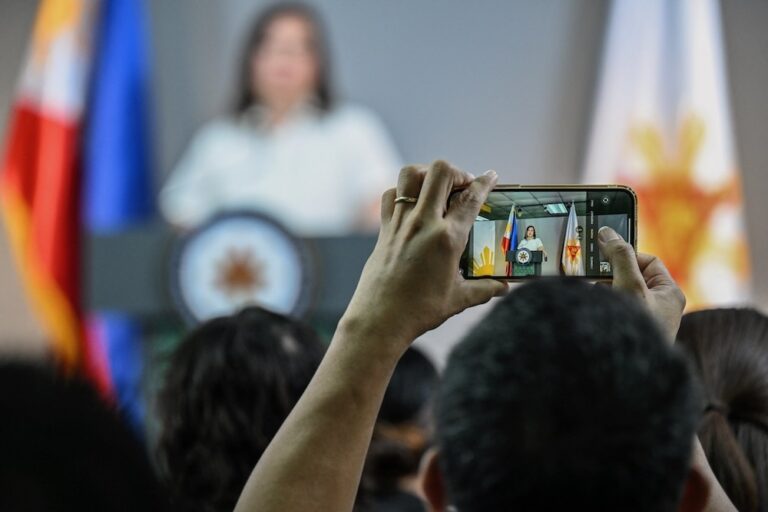A mid-month round up of COVID-19 key free expression news from Asia-Pacific, based on IFEX member reports and news from the region.
An important component in the global campaign against the COVID-19 pandemic is upholding and promoting access to information. Unfortunately, this is severely undermined across the Asia-Pacific region. How can people get reliable data if they are disconnected from communication networks? What happens to media credibility if authorities mandate the reporting of government perspectives on the health crisis? What if news websites are blocked under the guise of combatting disinformation? How can journalists perform their duty without fear if their colleagues are charged under criminal laws for quoting public officials? These are pressing questions based on real cases and unfolding issues across the Asia-Pacific region.
Pakistan: Digital exclusion
Internet access in Pakistan stands at around 35 percent. The Digital Rights Foundation and Bolo Bhi are concerned that, as more services move from offline to digital, many communities will be disadvantaged and placed in an ‘informational black hole’.
“Being deprived of the internet during a public health emergency creates a hierarchy in terms of access to information […] the most marginalised will be left behind.”
The two groups note that the digital gap is an urgent issue of human rights since it’s undercut by structural inequalities such as class, gender, location, ability, and ethnicity.
They issued several demands addressed to the government, businesses, and civil society groups on how to ensure that internet access is provided to all, especially to those who belong to the vulnerable segments of the population.
India: Ambiguous Supreme Court order on COVID-19 reporting
On 31 March 2020, India’s Supreme Court made this ruling in response to a government petition directing the media to report official data on COVID-19 to avoid causing public confusion and panic: “We do not intend to interfere with the free discussion about the pandemic, but direct the media refer to (sic) and publish the official version about the developments.”
Media groups said the court’s decision affirmed the free discussion about the health crisis but at the same time it could restrict the work of journalists.
The International Federation of Journalists said:
“Taking data and information from an official source is the normal practice of the media. However, this should not bar journalists from cross checking data and information received from government sources.”
In an interview with the Committee to Protect Journalists, lawyer Apar Gupta of the Internet Freedom Foundation said that the order was passed “without a careful degree of appreciation of the contours of free expression, and what value it serves during the times of a pandemic.” He added that the court has “accepted the government [request] for greater censorship powers as a need to contain rumour mongering and further social cohesion.”
Myanmar: 221 websites blocked
Myanmar’s Ministry of Transport and Communication directed four major telecommunication service providers to block websites that allegedly publish disinformation about COVID-19. The order led to the blocking of 221 websites that included adult entertainment pages and ‘fake news’ sites, but also websites of registered ethnic news agencies.
Reporters Without Borders (RSF) said:“The censorship that the authorities are in practice applying to many news websites is going to deny sectors of the Myanmar population of reliable information that is absolutely crucial to combatting the pandemic.”
Civil society groups published a statement deploring the increasing attacks on freedom of expression in the country.
“We are concerned that the government is taking advantage of the COVID-19 pandemic to censor legitimate information and curtail freedom of expression.”
Internet has been restricted in several towns of Rakhine State over the past nine months. Journalists and editors who interviewed leaders of armed groups were arrested and charged under terrorism laws.
Cambodia: Journalist arrested for quoting the prime minister
Human Rights Watch said the arrest of an online journalist who quoted Prime Minister Hun Sen was a new low for press freedom in Cambodia. Sovann Rithy of the TVFB digital news outlet was arrested on 7 April for publishing a video report quoting the prime minister’s advice to drivers to sell their motorcycles in order to avoid going bankrupt during the ongoing COVID-19 pandemic, since the government has no money to help informal workers. But the police said the prime minister was joking, and that repeating it caused public confusion. They arrested Rithy under Articles 494 and 495 of the Criminal Code for “incitement to commit a felony” which includes a prison sentence of up to two years.
Aside from arresting Rithy, the Ministry of Information revoked TVFB’s media license. On Twitter, Sopheap Chak of the Cambodian Center for Human Rights asked authorities to observe due process in handling the case.



